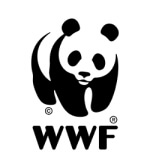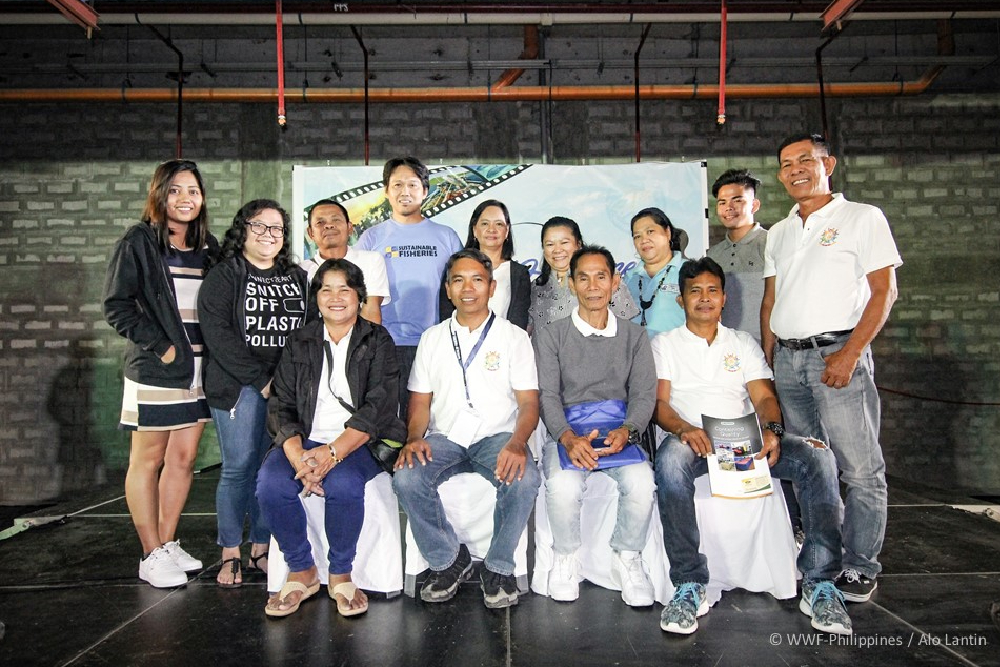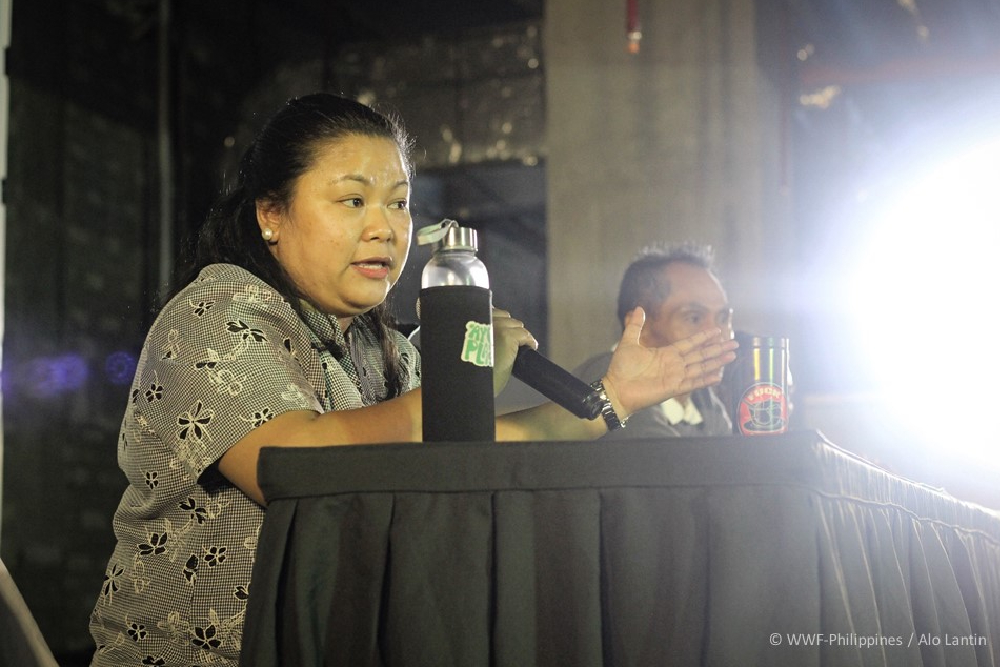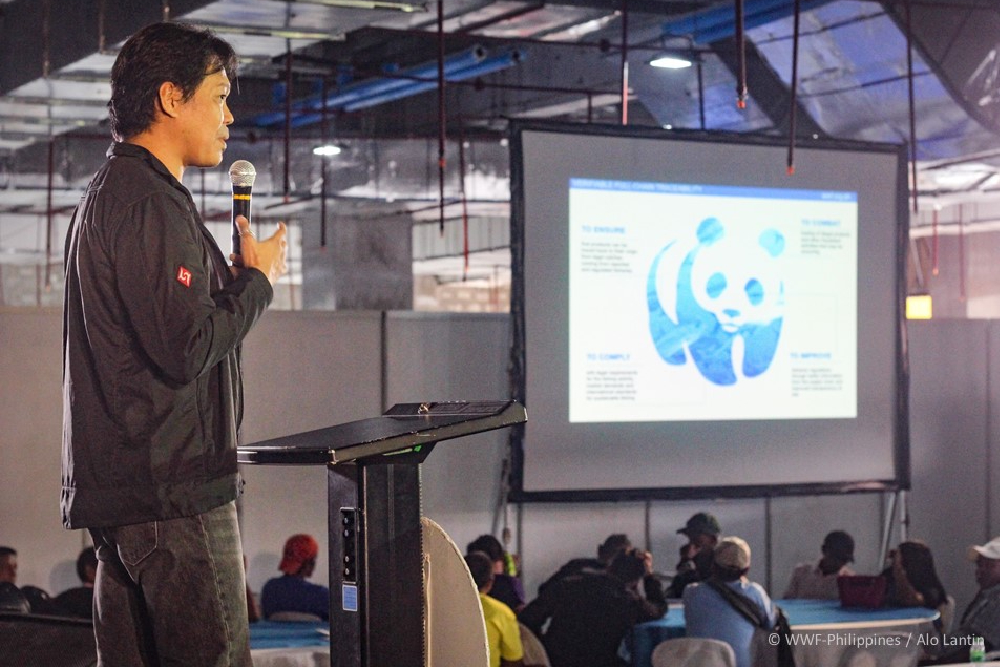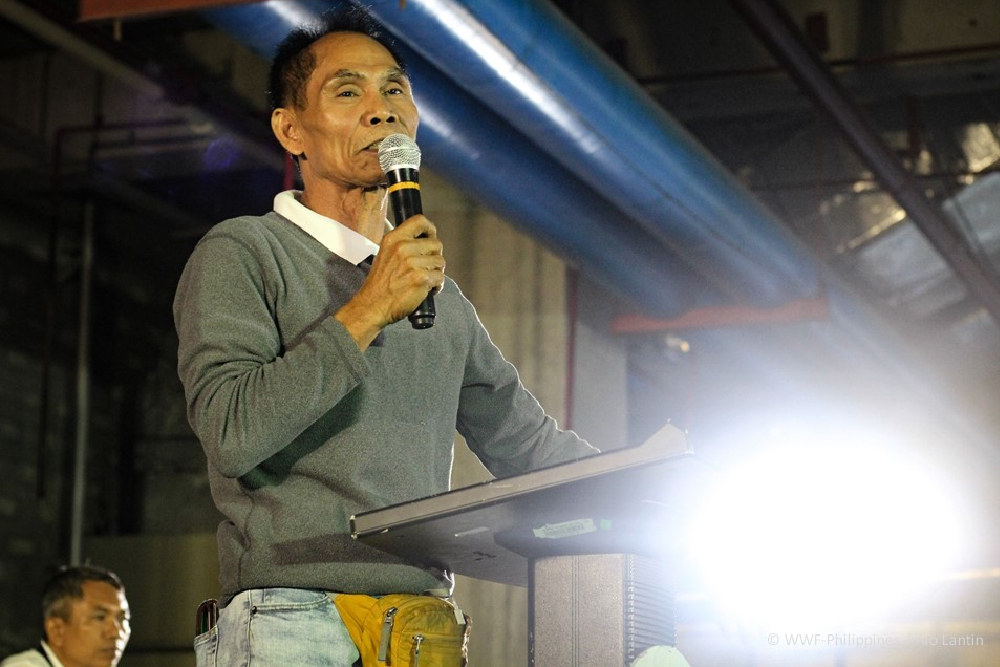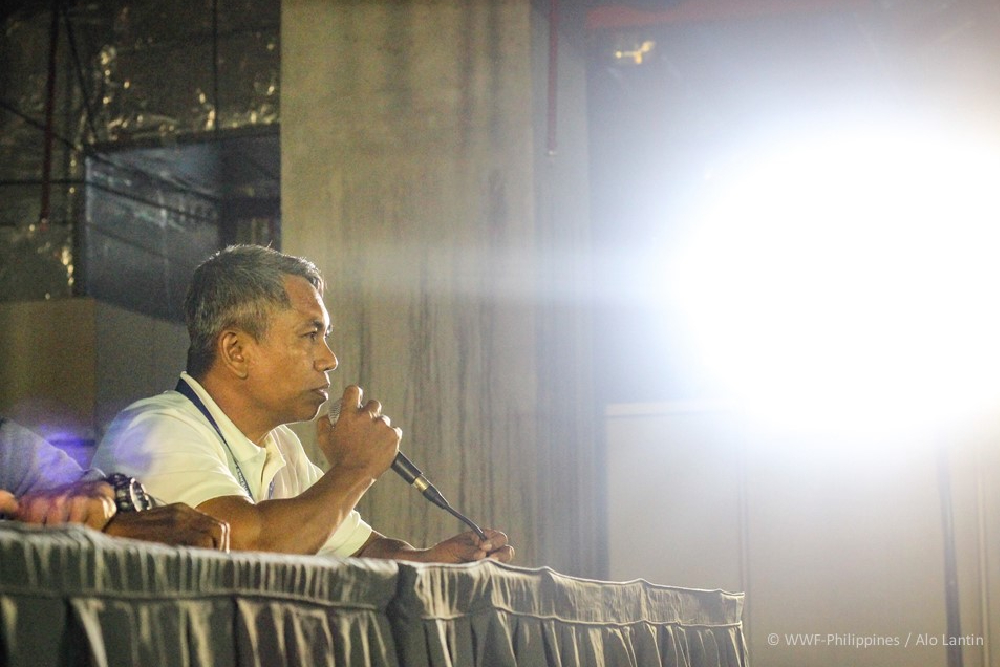The tuna fisheries of Bicol and Mindoro stand as an example for sustainable seas.
The World Wide Fund for Nature (WWF) Philippines presented its framework for sustainable fisheries during the 2nd All About Handline Summit, held at the start of this year’s National Tuna Congress in General Santos City. The Fisheries Improvement Project framework, as it is called, helps fishermen achieve a level of sustainability in their practices, in order to ensure the future of fishery resources.
WWF-Philippines has been championing the Fisheries Improvement Project framework for the past eight years through the Sustainable Tuna Partnership program. Known in shorthand as FIPs, the framework brings together stakeholders to promote comprehensive sustainability throughout the fishery value chain.
FIPs were designed to help fisheries meet the standards of the Marine Stewardship Council (MSC), the world’s most stringent ecolabel for aquatic resources. The first fisheries framework of its kind, the FIP ensures that fish is sustainable from the moment it’s caught to when it’s picked out of the ice box in overseas markets.
“Millions rely on the health of our fisheries, from consumers to producers, diners to fishermen. There are so many mouths to feed, and so many threats to fisheries. We have to work hard to ensure their continuity,” says WWF-Philippines Sustainable Tuna Partnerships Program Manager Joann Binondo, speaking before the summit. With pressure building ever greater on the productivity of fisheries, there is an urgent need to ensure they can last into the future.
Vital to WWF-Philippines’ FIP framework is the ability to trace catches from hook to cook. Catch data is needed to determine where fish comes from and whether it was caught legally and sustainably. Here, technology plays an important role as well.
“Traceability is about the protection of our resources, so that they don’t disappear and so that our industry can be more sustainable,” said WWF-Philippines Fisheries Technical Officer David David. The Sustainable Tuna Partnerships team makes use of technology and the support of partners to help trace where fishery products are coming from. The goal is for shoppers to be able to trace back what they’re buying right up to where the fish was caught, how it was caught, who caught it and whether it was caught sustainably.
“What we want is for everyone to realize – from the fishermen to the traders, the exporters to the shoppers – is that there will be big trouble tomorrow if we don’t take care of our fishery resources today,” added David.
The FIP framework and the opportunities that come with MSC certification has inspired fishermen across the country to take sustainability to heart. Joining the WWF-Philippines panel at the 2nd All About Handline Summit were Gulf of Lagonoy Tuna Fishers Federation Inc. Chairman Atenogenes Reaso and Regional Fisherfolk Director of MIMAROPA for the Month of May Bernard Mayo. Both men are tuna fishermen and partners of the Sustainable Tuna Partnerships Program, and both advocate for good fishery practices.
“I really have to thank WWF-Philippines for the help they’ve given to us. They really came down to meet us in our communities. They helped us organize, helped us become empowered,” said Reaso. Once a small-scale handline fisherman himself, Reaso now leads the tuna fishing associations of Lagonoy Gulf. He urges others to follow good fishing practices while sharing the plight of small-scale fishermen at national forums.
“My wish is that for sustainable fisheries not just where I’m from in Mindoro, but wherever there are fishermen out at sea catching tuna,” added Mayo, taking to the stage for his own testimony. A leader in his own region, Mayo has been lobbying directly with the provincial government of Mindoro for the rights of those who fish sustainably.
WWF-Philippines works with many small-scale tuna fishermen across the country, urging them to take lead in fighting for their rights. Many have answered the call, taking to the stage with pride and confidence as they push for the protection of their fisheries.
“I’d like to leave with a request – that, hopefully, we can arrive at a future where our fisheries are clean and healthy,” concluded Mayo, addressing his plea to the audience. Fisheries across the world sit in a precarious position as populations rise and as climates continues to change. WWF has risen to the challenges of a changing world, standing together with fishermen as they take the lead in fighting for a sustainable planet. As interest builds behind FIPs, so too does hope in a future where man lives in harmony with nature.

